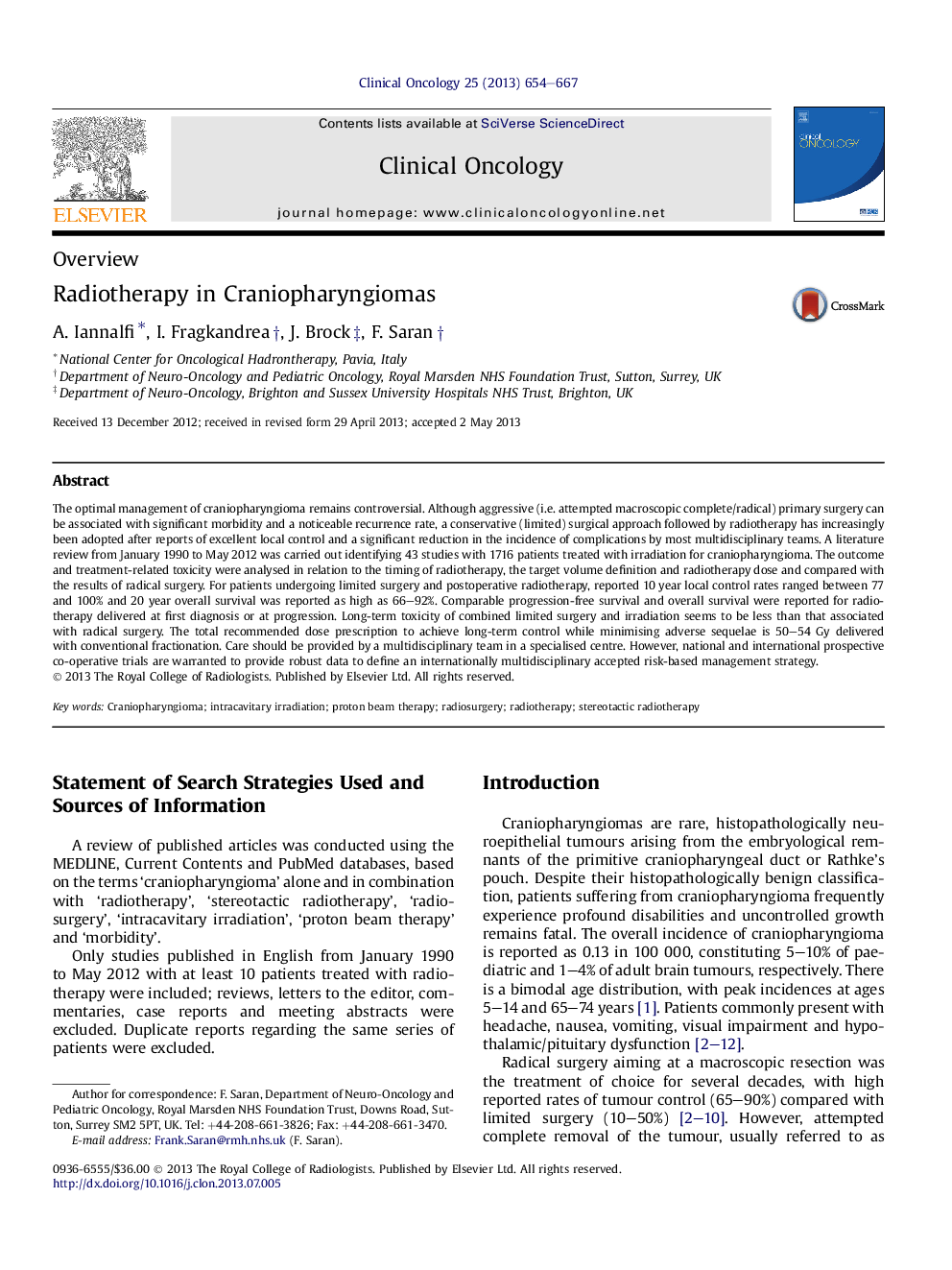| Article ID | Journal | Published Year | Pages | File Type |
|---|---|---|---|---|
| 5698769 | Clinical Oncology | 2013 | 14 Pages |
Abstract
The optimal management of craniopharyngioma remains controversial. Although aggressive (i.e. attempted macroscopic complete/radical) primary surgery can be associated with significant morbidity and a noticeable recurrence rate, a conservative (limited) surgical approach followed by radiotherapy has increasingly been adopted after reports of excellent local control and a significant reduction in the incidence of complications by most multidisciplinary teams. A literature review from January 1990 to May 2012 was carried out identifying 43 studies with 1716 patients treated with irradiation for craniopharyngioma. The outcome and treatment-related toxicity were analysed in relation to the timing of radiotherapy, the target volume definition and radiotherapy dose and compared with the results of radical surgery. For patients undergoing limited surgery and postoperative radiotherapy, reported 10 year local control rates ranged between 77 and 100% and 20 year overall survival was reported as high as 66-92%. Comparable progression-free survival and overall survival were reported for radiotherapy delivered at first diagnosis or at progression. Long-term toxicity of combined limited surgery and irradiation seems to be less than that associated with radical surgery. The total recommended dose prescription to achieve long-term control while minimising adverse sequelae is 50-54 Gy delivered with conventional fractionation. Care should be provided by a multidisciplinary team in a specialised centre. However, national and international prospective co-operative trials are warranted to provide robust data to define an internationally multidisciplinary accepted risk-based management strategy.
Keywords
Related Topics
Health Sciences
Medicine and Dentistry
Oncology
Authors
A. Iannalfi, I. Fragkandrea, J. Brock, F. Saran,
